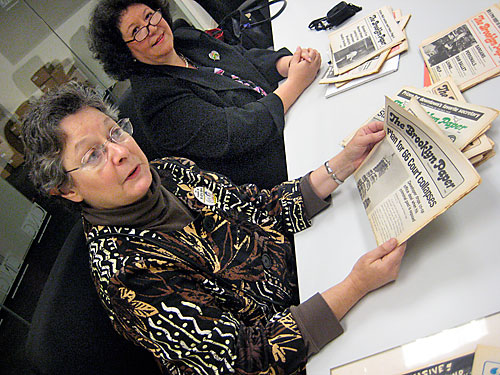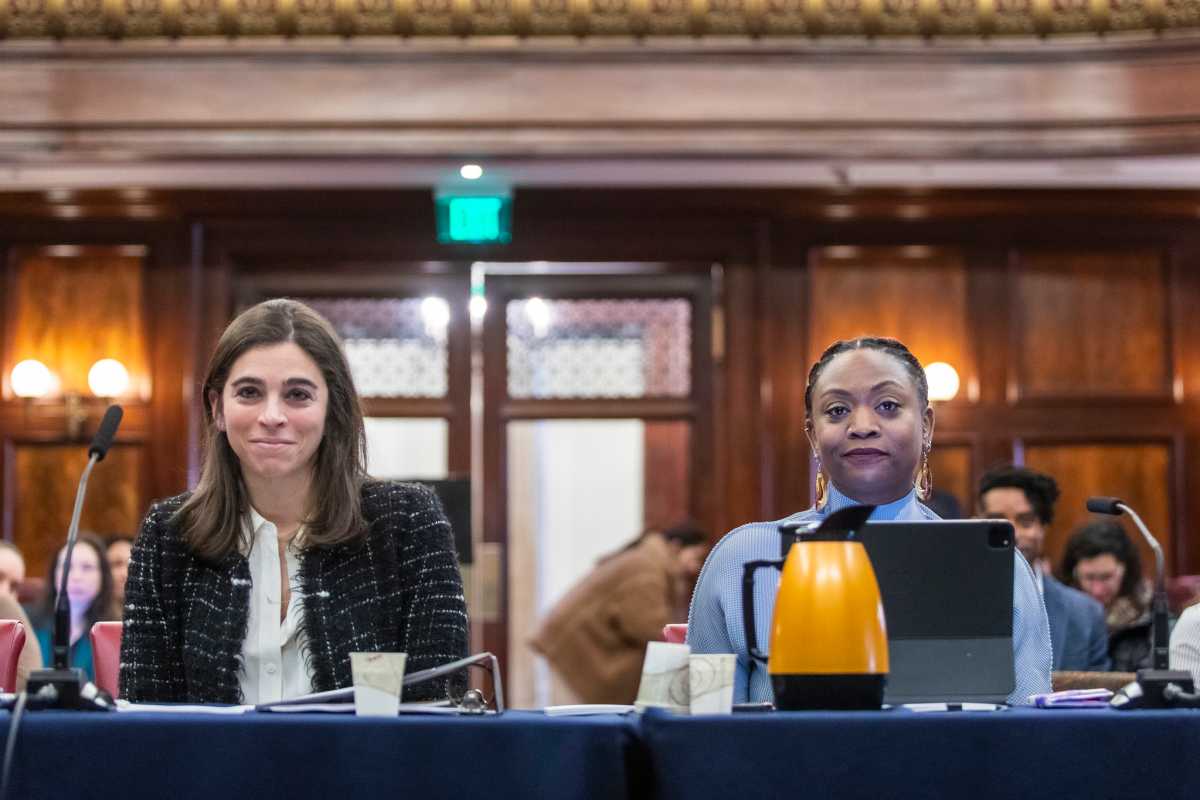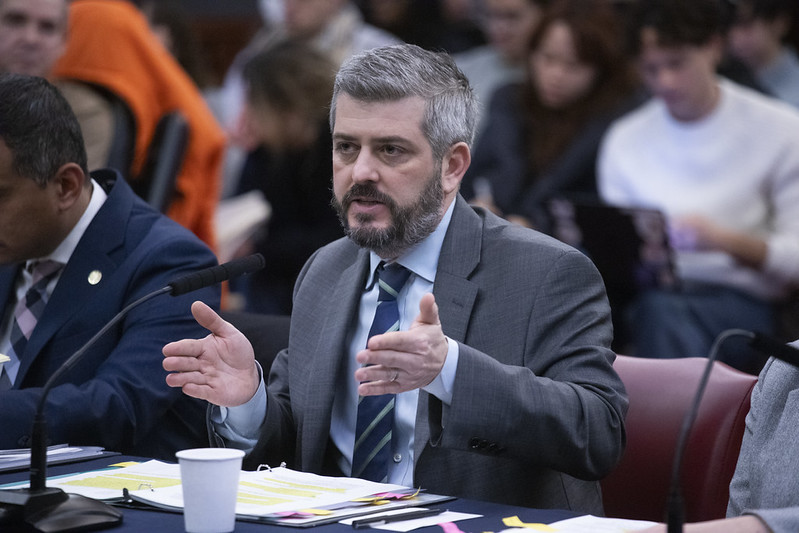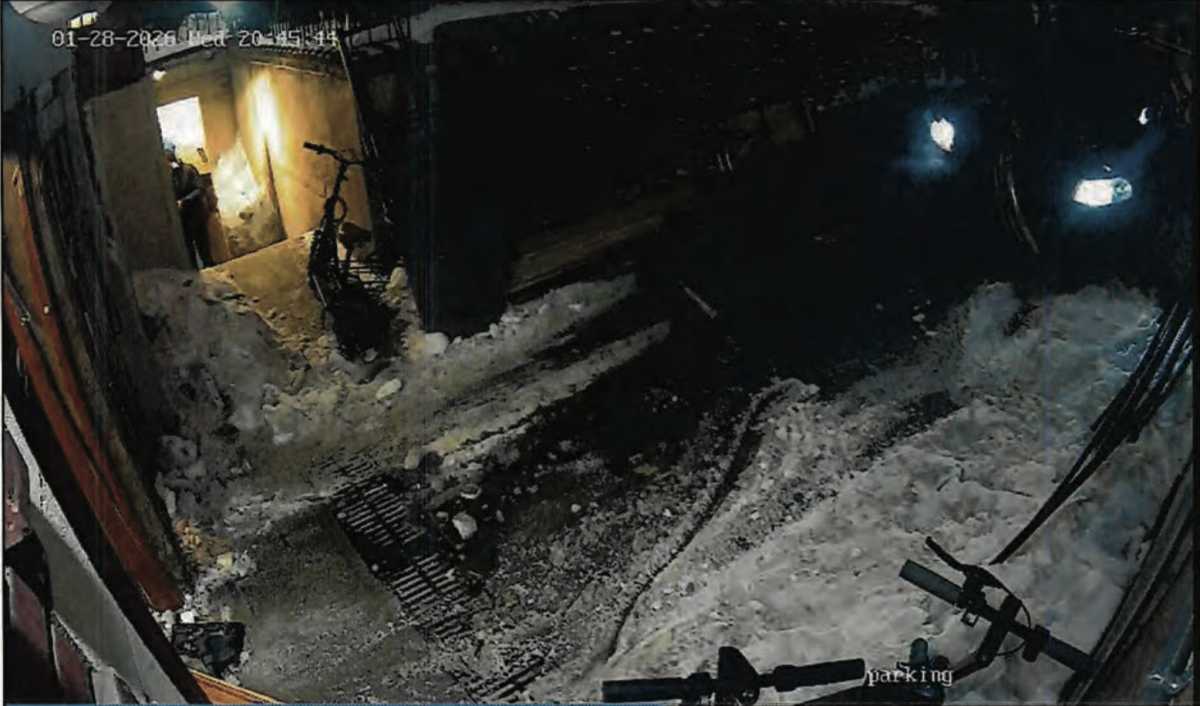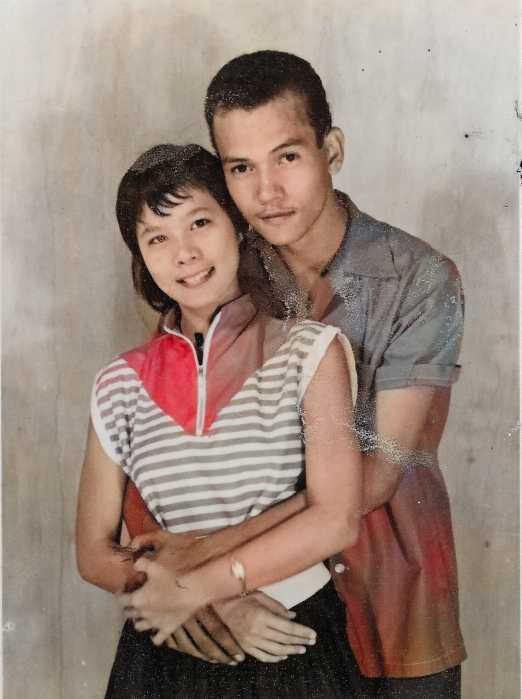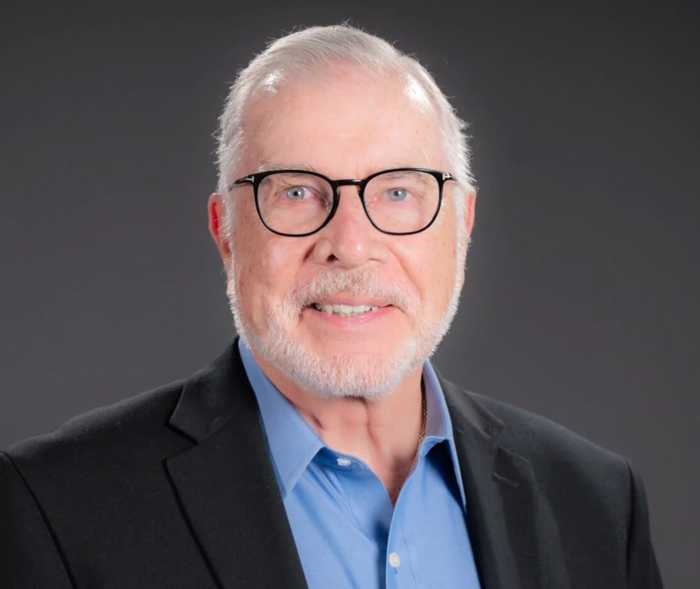Our first editor, Beverly Cheuvront, and our first features editor, Laurie Sue Brockway, sat down with our current editor, Gersh Kuntzman, and founding pubisher, Ed Weintrob, to share some memories, a few laughs, and expense account pizza. Cheuvront is now director of communications for NYC Habitat for Humanity, and Brockway is Family and Inspiration Editor at Beliefnet, a spirituality Web site.
The Brooklyn Paper: Do you have any favorite memories from The Paper’s first year?
Beverly Cheuvront: Brooklyn was very “wild west” then. Politically and in terms of development, things were just out in the open. People didn’t hide a lot — they didn’t seem to think they’d get caught doing anything wrong, so the stories were there for the picking. You didn’t have to work too hard to find corruption.
BP: What was one of your favorite stories?
Laurie Sue Brockway: I remember the Times and the News had written these glowing stories about this developer at 66 Court Street. And Beverly had done some digging to find out that this guy had been convicted previously of swindles of this type.
BC: I decided to check out the guy’s background. This is what I’m talking out about with stories being out there for the taking. It was not that hard to find out that he was a convicted felon.
LSB: But [before the Internet], it wasn’t such a simple thing finding those physical documents in other states.
BC: We sat together when we decided to call him and get his statement. And the high-tech system we had was an answering machine with a tape recorder. We recorded his response so we had a record of what he said to me, and he came clean.
BP: It’s hard, even in this Internet age, to get stories like this exclusively. So both of you are responsible for setting the tone with some really amazing work.
BC: I think we were able to set the tone because Ed believed in it. I can’t think of a lot of people who would invest their life savings in a newspaper with the goal of trying to earn a living and encourage this kind of reporting. It’s not typical for community papers. It just isn’t.
BP: I understand that in the early days, the establishment in Brooklyn didn’t exactly love you, Ed.
Ed Weintrob: I had to meet with the Chamber of Commerce because they had actually discussed a formal boycott. One of the members of the board who was a lawyer said it’s really not a good idea for the Chamber of Commerce to officially boycott a newspaper. Then I had to go see the Citibank vice president and explain to her what a newspaper was about, that a newspaper just doesn’t print press releases. They were upset about the coverage of the police, they thought we shouldn’t print crime news.
BP: What other big stories might people remember?
LSB: Before I was a reporter, I was just an office manager. I swear I was sweeping the floors and I remember Beverly calling, “Oh Brockway. We have an assignment for you!” She sent me over to Episode 2, the brothel on Remsen Street, to see if I could get an interview with the prostitutes who were busted that week. They were back at work, so I said OK. I went and it looked like my dentist’s office, except the woman behind the door was wearing hot pants. I said “I’m Laurie Brockway and I’m here to get your side of the story. Can I just talk to the prostitutes that were busted?” So she says, “No.” And she goes and gets the madam. I think they let me in because they thought I was looking for a job. I said, “I’m here, I’m on your side, I just want to talk to the three women, really, we’re on your side.” And the madam says, “Get out of here.” She actually pushed me. So I remember for a half hour I walked around Brooklyn Heights, just circling and crying and thinking, “Oh my god my career is over, I blew it. My first assignment and I couldn’t get it.” So I went back and wrote a story about getting kicked out of a cathouse. I think it was my first story ever published. After that, I became a crime reporter and about a year later we got a call from one of the cops in the neighborhood, saying they were taking beds out of Episode 2 — and this time, the madam gave me an exclusive.
EW: The headline was, “Episode 2 closes, ending service to community.“
BP: The story of these last 30 years is the story of the revival of Brooklyn. The brownstoners moving in, renovating those homes, getting rid of some of this political corruption, etc. When you look back on those years, what do you think have been the significant changes?
LSB: I think we all wish we’d bought brownstones.
BC: Covering affordable housing got me interested in housing issues. The incident that really got me involved was in the heart of Brooklyn Heights. The landlord wanted to renovate it. He wanted to empty it out. He’d turned off all the utilities while people were living there. I found out about it from knowing the neighborhood. When I went there I met a very elderly woman who was living on one of the top floors, and she was carrying water upstairs to her apartment. She had no other option. So she was taking this bottle of water and carrying it up the stairs, and climbing up after it. All the way up to her top floor. Another story was about the absolute worst of the once-notorious homeless hotels, right across from BAM. To walk in there and see what was happening to the families there and the conditions they were living in was beyond belief. It was a city-run homeless shelter in a hotel. The city would pay the landlord astronomical amounts of money to house homeless families there. There was one family that had no bathroom on the whole floor. They had buckets. That’s how they lived. And the city was paying the market rate for these rooms. These were the kinds of stories about housing that set me on fire. We were not very popular for reporting those. BAM was very unhappy that we highlighted what was going on there.
BP: Any other enemies?
BC: One time, a liquor store was planning to open up across the street from an existing liquor store. The state liquor authority was just deluged with letters opposed to the new store. Then we looked at it closely and realized all the letters came from the owner of the existing liquor store! He generated them! We raised this with the liquor authority and the guy almost lost his license.
BP: You got the letters from the liquor authority and then went to the addresses to confirm that the letters were real? What gave you that idea?
BC: That’s what reporters do.
BP: Not anymore they don’t.
BC: Yeah, now you take the letter, write something off the top of your head, post it on your blog and it becomes gospel. But good reporters who do dig — they’re the ones who get the stories.


